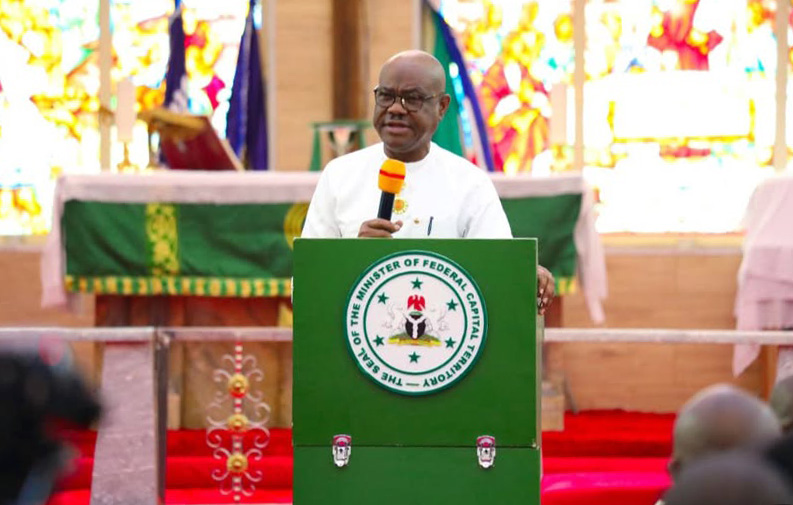The Church of Nigeria has taken a firm stance against the use of its pulpits for political purposes, following a controversial speech by the Minister of the Federal Capital Territory (FCT) during a church service in Abuja on July 6.
Archbishop Henry Ndukuba, after consulting with fellow bishops, issued new guidelines on July 11, which seek to preserve the church’s neutrality and avoid any division within its congregation.
The guidelines emphasize that while church services remain open to everyone, including politicians, they are not to be used as platforms for advancing political views or promoting partisan rhetoric.
Church leaders are encouraged to engage in prior conversations with any guests invited to speak, ensuring that the church’s values and role as a neutral space are respected.
The church’s renewed focus on neutrality also discourages clergy from making politically charged statements, and stresses that the pulpit should not be used for non-religious purposes. Archbishop Ndukuba specifically addressed the importance of preserving the sanctity of the lectern, which is consecrated for the reading of the scriptures.
This decision comes in response to criticism surrounding comments made by FCT minister, Nyesom Wike, during a July service at St. James Anglican Church in Abuja. Wike used the occasion to target opposition figures, including Peter Obi, a leading candidate for the 2027 presidential race, and to comment on the country’s political climate. His remarks, which also criticized the decision to select a Muslim running mate for President Bola Tinubu, raised concerns among church members and the public about the church’s involvement in political discourse.
The Church of Nigeria’s guidelines aim to reaffirm its commitment to fostering unity and trust among its followers, in a nation where religion plays an important role in providing hope and support.
In a country where political and religious institutions hold significant influence, the church’s leadership is keen to prevent any further erosion of its reputation as a neutral and spiritual institution.
Critics argue that political involvement within the church can undermine its ability to remain a moral compass for society, and may lead to the compromise of its core mission to serve its congregants.
Dr. Emeka Nwajiuba, a long-time political figure and Anglican Church member, suggested that the relationship between church leaders and political donors could be contributing to the blending of religion and politics. He also pointed out that many religious institutions in Nigeria have become more focused on building wealth and maintaining high-status lifestyles, leading to increased reliance on donations from wealthy individuals, including politicians.
In addition to limiting political speech, Dr. Nwajiuba advocated for a cultural shift within the church. He suggested that a more intentional, scripture-based approach to teaching and leadership is needed to address the challenges of materialism and political influence in church life.
The Church of Nigeria’s decision follows similar actions by the Anglican Church of Kenya in March, where Archbishop Jackson Ole Sapit took steps to limit political speeches during church services and announced that donations from politicians would no longer be publicly acknowledged in the same way.


